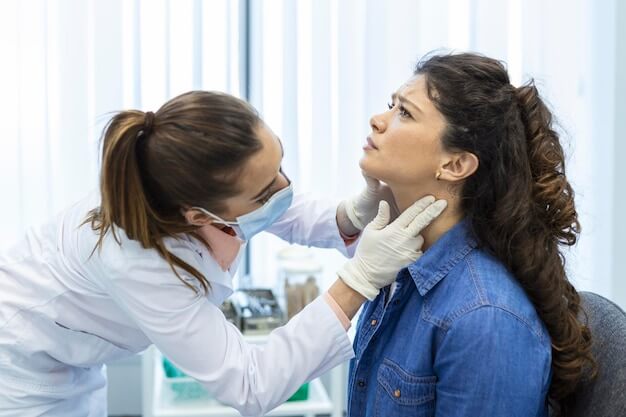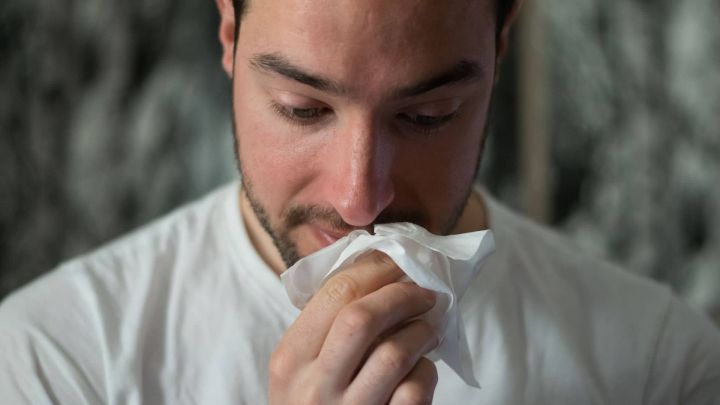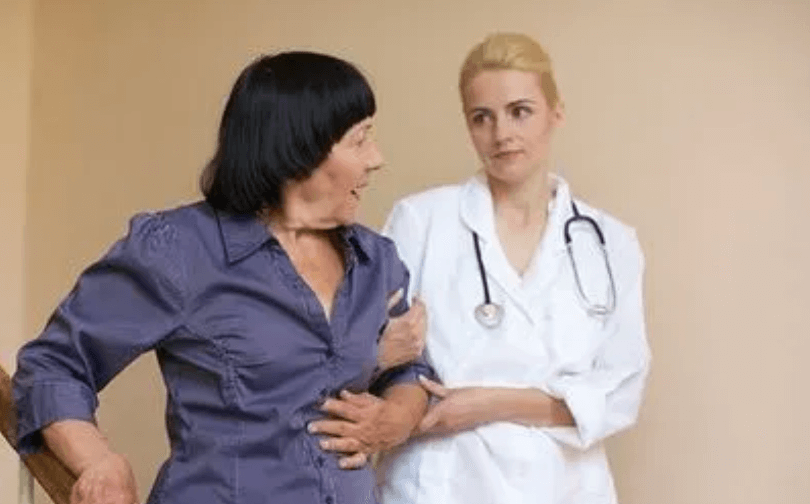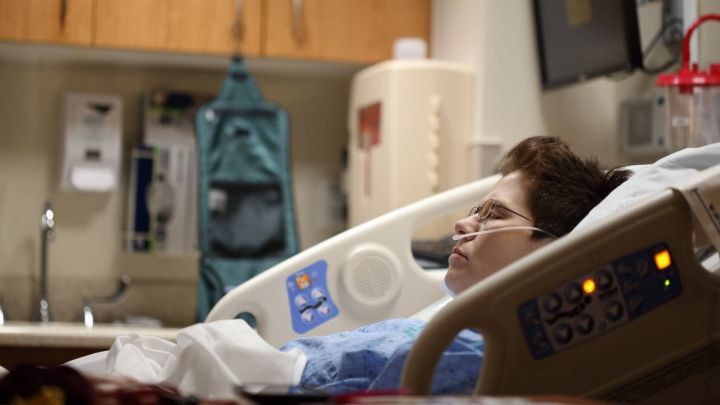Disease
Long-Term Antihypertensive Drugs Hurt Liver And Kidneys? Doctors: No Medication Is More Risky!
Many elderly people have high blood pressure themselves, but refuse to stick to their antihypertensive medication, thinking that taking it for a long time will have many side effects.

Many elderly people have high blood pressure themselves, but refuse to stick to their antihypertensive medication, thinking that taking it for a long time will have many side effects. However, if you refuse to take blood pressure medicine because of this reason, the risk of not taking blood pressure medicine is far greater than the side effects.
I, What happens if I take antihypertensive drugs every day?
Antihypertensive medication is a drug that regulates blood pressure. For most people with high blood pressure, antihypertensive medication is a necessity of life, like rice.
Keeping blood pressure stable is an important way to maintain good health, so never stop taking your medication indiscriminately. Once blood pressure becomes unstable a series of complications such as coronary heart disease, hypertensive heart disease and chronic renal failure can occur, with unimaginable consequences.

Many people feel that long-term use of antihypertensive drugs will be a great burden on the liver and kidneys, and will therefore refuse to take them. Suffering from hypertension itself is harmful to the liver and kidneys and can easily cause functional disorders and increase the probability of hypertensive nephropathy.
Antihypertensive medication, on the other hand, controls the effects on the internal organs to a certain extent and is generally not too problematic as long as it is taken according to medical advice. Of course if you have some hidden disease of your own, the side effects of antihypertensive drugs will naturally rise, but the probability of this is very small.
The effect of long-acting antihypertensive drugs can be maintained for 48-72 hours, which means that taking them once can maintain normal blood pressure for 1-2 days. These antihypertensive drugs are suitable for patients with more serious hypertension problems and can effectively control blood pressure problems and have a good preventive effect on cerebral haemorrhage.
Generally people taking long-acting antihypertensive drugs will experience a significant rise in blood pressure after 72 hours, at which point it is not advisable to use long-acting antihypertensive drugs to lower blood pressure, but to seek medical advice to regulate blood pressure.
Short-acting antihypertensive drugs have a shorter duration and need to be taken according to medical advice. If you miss a dose during the day, don't be anxious and take it in time to achieve a stable blood pressure.
If it is only the evening meal that is not taken, then there is no need to take it until the next morning. As the fasting period is longer at night, the blood glucose concentration in the blood is lower and the blood pressure is relatively stable, so it is not a big problem if you do not take the medication.

Second, taking antihypertensive drugs, pay attention to these 3 points
Antihypertensive drugs mediate the balance of blood pressure and therefore have a good regulatory effect on the blood. When taking antihypertensive drugs, you must pay attention to the following 3 points.
1,It's not terrible to miss a dose, it's terrible not to take it right away
Many people are easily unaccustomed to taking antihypertensive medication when they first start taking it, to the point of missing doses. Leakage is a problem for many patients taking medication at the beginning, especially when taking short-acting antihypertensive drugs, which are taken more often every day, and once they are missed, their blood pressure will rise.
Remember to make up for it at this time, there will not be too much of a problem, otherwise it is easy to have a cerebral hemorrhage.
2,Do not take antihypertensive drugs indiscriminately to avoid inconsistent effects
Generally, after consulting a doctor, the doctor will choose the antihypertensive drugs according to the actual situation of the patient. If there is no improvement after taking antihypertensive medication, do not change the medication privately.
After 1-2 weeks of taking antihypertensive medication, if there is no effect on blood pressure, try to take it for another week or go directly to the hospital for advice.
3,Taking your medication on time can help relieve heart and brain infarction
The most obvious symptoms of elevated blood pressure are dizziness and headache. After taking medication to stabilise blood pressure, all these symptoms will be eliminated one by one, as stabilising blood pressure is the most effective way to treat hypertension.

Frequent missed doses, stopping and changing medication can cause large fluctuations in blood pressure and increase the likelihood of brain infarction, myocardial infarction and sudden brain death, and for those who already suffer from related illnesses, this will undoubtedly aggravate the condition.
When taking medication, you can follow your own blood pressure pattern, measure your morning peak and then take your antihypertensive medication according to your doctor's advice.
Anti-hypertensive drugs are generally best taken before breakfast, this is because the morning is the first peak of blood pressure ushered in, this time must be taken in time to avoid an increase in cardiovascular and cerebrovascular accidents.
Third, control your mouth, high blood pressure away from you
There is a popular saying that grapefruit and oranges must be avoided when taking antihypertensive drugs, this is because they contain furanocoumarins, the biggest feature of this ingredient is to promote drug metabolism.
Because furanocoumarins are essentially enzymes that reduce the metabolism of the drug while increasing the concentration of the drug in the blood, which in turn increases its toxic effects, it is still necessary to avoid them.
For people with hypertension, lowering the thickness of the blood is an effective way of relieving blood pressure. Choosing foods with a cooling effect in your daily life can help, such as watermelon, celery and bitter gourd.

High blood pressure is not as scary as it is said to be and is very well controlled, but it is the other diseases associated with high blood pressure that many people ignore, making it a high-risk disease.
Use more daily health care, such as eating more vegetables that reduce the thickness of blood pressure and adding some aerobic exercise to regulate the blood after eating, and doing this well will keep the disease away.
-
![]()
![]() DiseaseMar 03, 2026
DiseaseMar 03, 2026What should we know to prevent Hashimoto's thyroiditis?
-
![]()
![]() DiseaseMar 02, 2026
DiseaseMar 02, 2026Can Head And Neck Cancer Recur After Treatment? What Is The Treatment For Recurrence?
-
![]()
![]() DiseaseMar 01, 2026
DiseaseMar 01, 2026What Are The Causes Of Nasopharyngeal Carcinoma? What Are The Treatment Options For Nasopharyngeal Carcinoma?
-
![]()
![]() DiseaseFeb 28, 2026
DiseaseFeb 28, 2026Uremia Is Most Likely To Be "Dragged Out", The Body Appears 3 "Abnormal", Check As Soon As Possible
-
![]()
![]() DiseaseFeb 27, 2026
DiseaseFeb 27, 2026How Is Bile Duct Cancer Caused? How Does Bile Duct Cancer Need To Be Treated?




